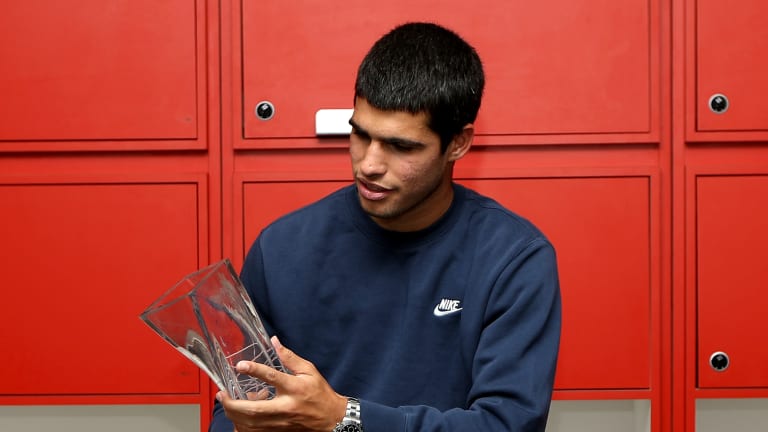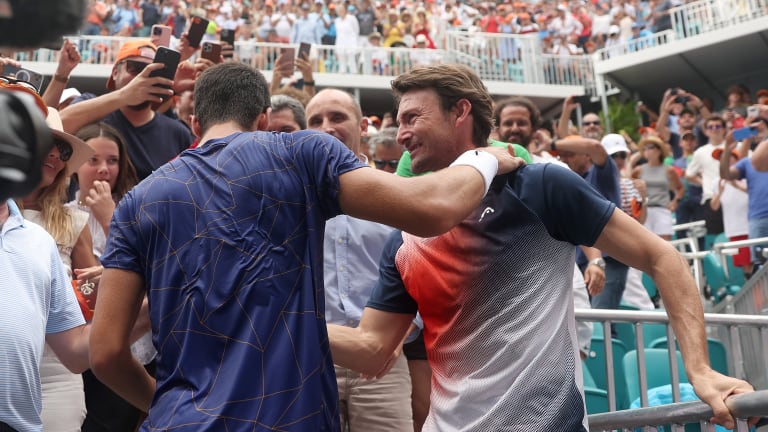Miami, USA
If 18-year-old Miami Open champion Carlos Alcaraz has any limits, we haven’t seen them yet
By Apr 03, 2022Miami, USA
In beating idol Novak Djokovic, Jakub Mensik came of age in Miami
By Mar 31, 2025Miami, USA
Can Jessica Pegula step out of comfort zone on clay?
By Mar 31, 2025Miami, USA
Jakub Mensik, Miami champion, was going to pull out of the tournament an hour before his first match
Mar 31, 2025Miami, USA
Teenager Jakub Mensik denies Novak Djokovic 100th title in Miami Open upset
By Mar 31, 2025Miami, USA
Aryna Sabalenka takes aim at Iga Swiatek's dominance of the European clay season
By Mar 31, 2025Miami, USA
Novak Djokovic vs. Jakub Mensik: Where to watch, and who will win, their Miami Open final
By Mar 30, 2025Miami, USA
Roger Goodell watches on as Aryna Sabalenka defeats Jessica Pegula in Miami final
By Mar 29, 2025Miami, USA
Aryna Sabalenka masters Jessica Pegula again to win Miami Open
By Mar 29, 2025Miami, USA
19-year-old Jakub Mensik to face Novak Djokovic in Miami Open final
By Mar 29, 2025If 18-year-old Miami Open champion Carlos Alcaraz has any limits, we haven’t seen them yet
The surging Spaniard beat Casper Ruud for his first Masters 1000 title with the same athleticism, acumen, and assurance he has shown all season.
Published Apr 03, 2022
Advertising
Advertising

Carlos Alcaraz has quickly become a must-watch player in professional tennis.
© Getty Images
Advertising

Former French Open champion Juan Carlos Ferrero celebrates with his pupil, Alcaraz.
© Getty Images